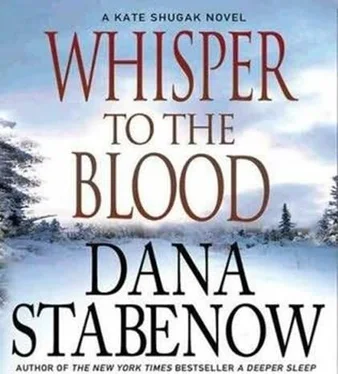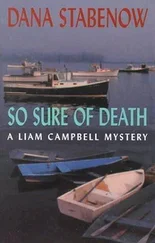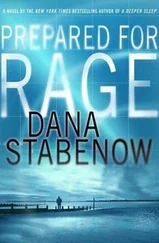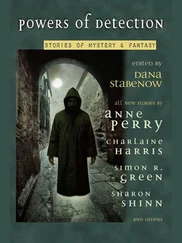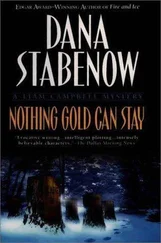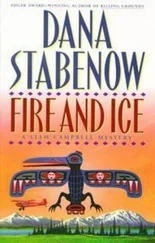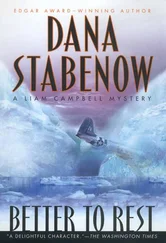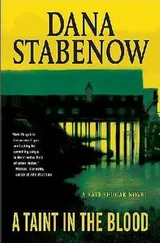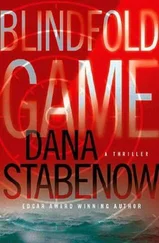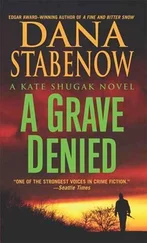The building shook as Willard stumbled down the steps. Jim made sure the safety was on and tucked the gun into the back of his pants beneath his jacket, just in time to return to his previous position and assume an innocent expression when Cindy slammed back inside.
"There," she said, not at all appeased.
"There, indeed," Jim said. "I took your gun, Cindy. I think it's best."
For a moment she looked ready to erupt again, and he braced himself, but she settled back on her heels. "Fine," she said. "Did you want to buy something?"
"No," he said.
"Then get your ass out of here."
She didn't add, "You useless piece of crap," but he could hear the words hovering on the tip of her tongue. He got.
Outside, Willard was standing at the bottom of the steps, shivering.
Willard Shugak was a tall man and big with it, handsome until you looked close and saw the vacant look in the wide-set eyes beneath the fey brows, the slackness in his mouth. His clothes looked better than normal today, clean and neat and whole, which was a pleasant surprise. Howie Katelnikof, his roommate, must have taken over the wardrobe that morning. Jim only wished he'd do it every morning. At the same time he was suspicious, because it was unlike Howie to do anything that didn't provide an immediate return. Maybe Howie had a yen for some Reese's Peanut Butter Cups?
Willard, not content with neat and clean, had gilded the lily. Draped around his waist and over his shoulder, kind of like a toga, was a large and most colorful quilt, made for him by the aunties. It was a departure for them in two respects, in that until then quilts had been made only for new mothers, and that this one didn't feature a traditional pattern. Instead, it was made up of squares featuring embroidered portraits of Star Wars characters. In the center was one of Anakin Skywalker, which likeness bore an uncanny resemblance to Willard.
This, from four women who prided themselves on following the traditions set down by colonial American women slowly going blind in ill-lit pre-Revolutionary War log cabins on lonely and dangerous frontiers as they pieced together intricate patterns from leftover scraps of fabric. It was an action akin to Nathan Jackson carving a totem pole out of Disney characters. It just wasn't done. Nevertheless, the aunties had. It was a nine-day wonder all over the Park.
Willard hadn't been seen in a coat since the aunties had given him the quilt. Jim didn't know what the aunties were going to say when they saw the chocolate smeared down the front of it.
"Hey, Willard," Jim said.
Willard spun around as if he'd been shot. His face was red and liberally adorned with chocolate, tears, and snot. "Uh, hi, Jim." He sniffed and gulped and wiped his face on his sleeve, which didn't improve matters. "I didn't see you there. How are you? Anakin, say hi to Jim." He pulled the quilt down.
"Hey, Anakin," Jim said to the Star Wars action figure peeping out of Willard's shirt pocket. "Willard, you going to share that candy bar in your pocket with Anakin?"
Willard's eyes darted to left and right, and he ducked his head. "What candy bar? I ain't got no candy bar."
"Sure you do." He reached into Willard's pocket and pulled it out. Sure enough, one last Reese's Peanut Butter Cup. Willard made a frantic and belated grab at stopping him, but came up only with a handful of air. He looked indescribably guilty.
"Willard, we've talked about this," Jim said. "You can't just take things from the store without paying for them."
Willard hung his head. "I know, Jim. I'm sorry, Jim."
"I know you know, and I know you're sorry." He held up the candy bar. "You got the money to buy this?"
Willard shook his head without looking up.
"Oh, for heaven's sake," a voice said behind Jim. "I'll buy him the damn candy bar."
Jim turned and beheld a vision.
Well, perhaps not quite a vision, but certainly one of the more attractive women he'd ever met. Blond, blue-eyed, a lean figure with enough curve to offset the muscle, a rosy complexion, a smile that was as charming as it was inviting.
He knew instantly who she was, of course. "Talia Macleod," he said involuntarily.
She looked delighted, her face framed by a white fur ruff on her parka hood, her breath making little clouds in the cold air of the parking lot. "How did you know?"
"I've heard."
"Of course," she said. "You would have. Chopper Jim."
"How did you know?" he said. She dimpled. "I've heard."
He laughed, and then caught Willard's arm as he tried to sidle away. "Excuse me," he said to Macleod, and walked Willard to his truck. He opened the door and helped him inside.
"Thanks, Jim," Willard said, sniffling. With a hungry glance fixed on the candy bar in Jim's hand, he said, "You going to eat that, Jim?"
"Willard," Jim said, holding the door open, "a store is where people buy things. They pay for them with money they bring with them." He spoke slowly and carefully. "I know we've never had a store in the Park before, but it works just like all the other stores you've ever been in."
Willard was following this carefully. "Like Costco?" he said, his brow knit in labored thought. "Just like Costco."
"Do I need a card before I take things out?"
Jim repressed a sigh. "No. Willard, unless you have money to buy stuff, stay away from Cindy's store, okay?"
"Okay, Jim," Willard said, happy enough to promise anything if it'd keep him out of jail this time.
Jim closed the door, and Willard started the engine and backed carefully out into the road and drove off.
Jim stood there, watching Willard's truck move down the road.
There wasn't a Park rat breathing who didn't think that Louis Deem had robbed Bernie Koslowski's home last spring, and that in his panicked rush to escape had shot and killed Bernie's wife, Enid, and Bernie's son, Fitz.
The celebration that followed Louis's own murder had quite drowned out Jim's subsequent inability to bring anyone to justice for it, investigate he never so thoroughly. Park rats were unanimous in feeling that Louis, a career criminal who had preyed on them for years with impunity, beating every charge brought against him including the murder of all three of his wives, with a record that was a veritable monument to his lawyer's genius in the courtroom, had finally got what had long been coming to him. Nobody cared who killed him, only that he was dead and in the ground and they never had to worry about him around their sisters, daughters, and wives ever again.
In the meantime, only Jim knew who was really guilty of the Koslowski murders, and he was watching him drive away. He couldn't prove it. Other than his own personal understanding of Louis's and Willard's respective characters and a photograph of the crime scene, he had no evidence. Willard himself, his brain destroyed in the womb, didn't remember it. No one else knew, only Jim.
For that matter, no one else cared. And no day passed without him thinking about it, worrying at it, the knowledge gnawing away at him until he felt like he was bleeding internally. Louis Deem's legacy. Sometimes he thought he could hear Louis laughing.
"Is he simple?" Macleod's voice said from next to him.
Recalled to the present, he said, "FAS. His mom was a drunk."
"I'm surprised he's allowed to drive a car."
"He manages to pass his driving test," Jim said. "Every time. And I have to say he's one of the better drivers in the Park. And certainly the best mechanic. But, yes, it surprises me, too."
She held out her free hand. "It's nice to meet you. I was meaning to drop by the trooper post and introduce myself." She grinned, and it was a great grin, with a wattage that could have powered a small city. "My company is going to be responsible for bringing a packet of trouble your way."
Читать дальше
